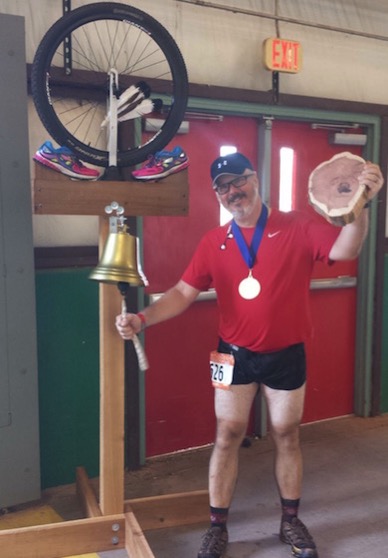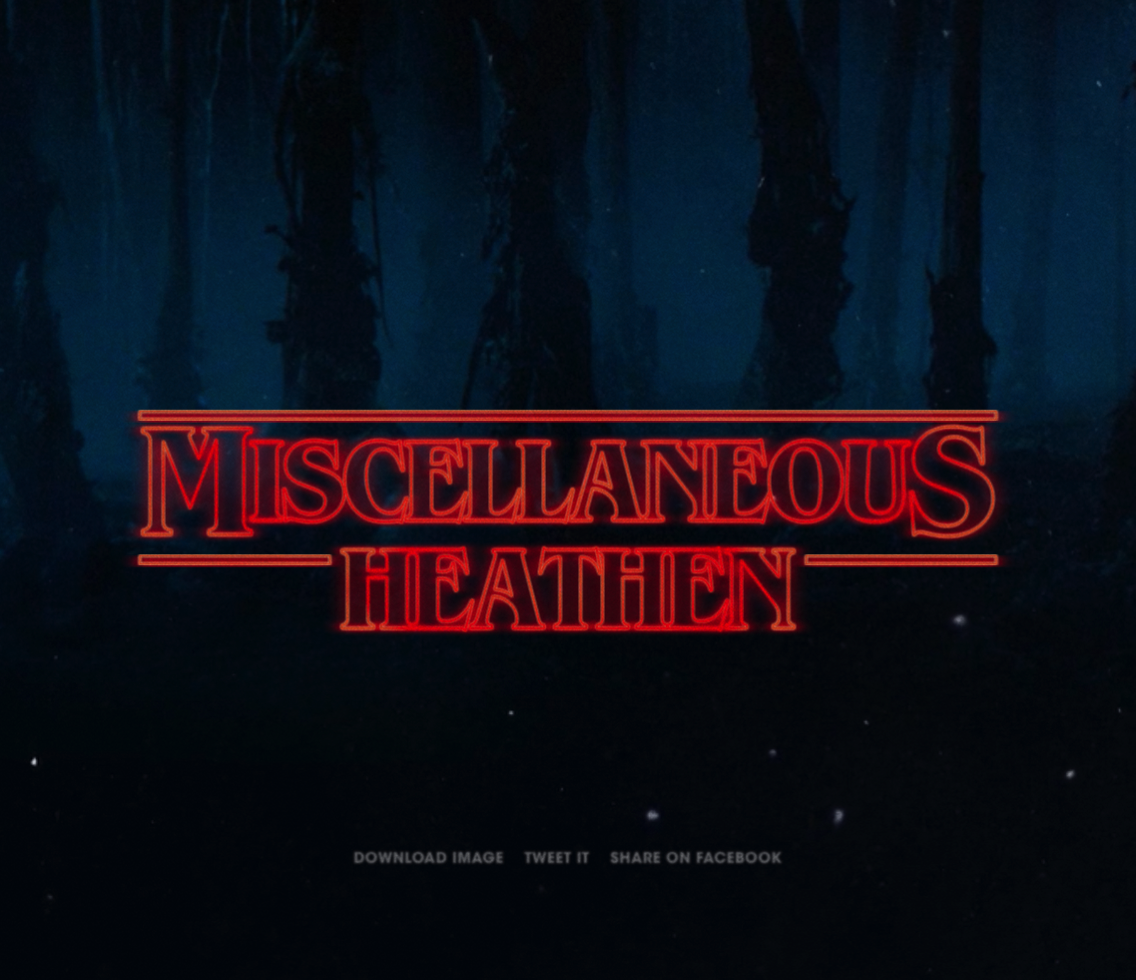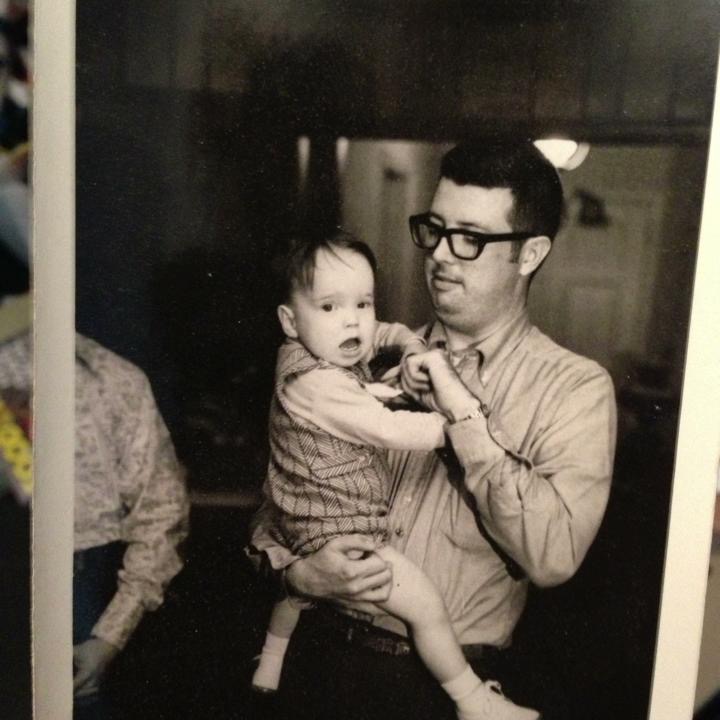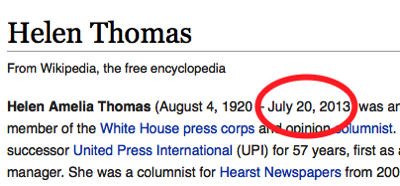Over at the Times, there’s a great feature of photographs of the studies and workspaces of recently departed prominent folks. Check it out.
Yearly Archives: 2016
Merry Christmas, you wonderful old building and loan!
This year, I’ve managed to see my favorite holiday film TWICE: Once, with live orchestra playing the score, courtesy of the amazing Mrs Heathen; and then again, at home on the couch, with the aforementioned Mrs Heathen. This is probably the optimum viewing frequency, and certainly exceeds the level of delight on offer in, say, 2014, when we watched it in the HOSPITAL with COMMERCIALS like ANIMALS.
Anyway, I yammer on about this film nearly every year here, so this time I thought I’d make it more interesting. How about TEN COOL THINGS about It’s A Wonderful Life?
1. Tabloid Fodder!
Let’s start with the somewhat seedy: Gloria Grahame, who plays the sultry Violet Bick in the film, was basically an early Hollywood plastic surgery casualty (it left her upper lip paralyzed), and to really put her on the tabloid map she also managed to make her third marriage spectacularly scandalous: it was to a man who had previously been her stepson.
2. Pharmacist Savior
Mr Gower the druggist — played by H. B. Warner (1875 – 1958) — appeared in a number of Capra joints, which is of course not surprising now. However, being in this particular film, or even Capra’s films generally, isn’t his main claim to film fame: he played Jesus in Cecil B. DeMille’s silent epic The King of Kings in 1927.
3. Well, it was kind of rascally.
Mary’s annoying suitor in the high school dance scene — the fellow who ultimately opens the gym floor, sending the Charleston contest into the pool — was played by Carl Switzer, better known to you as Alfalfa on the Little Rascals. Mr Switzer, sadly, didn’t end well.
4. Hopefully, her life had flavor ’til the end.
The last surviving adult cast member, near as I can tell, was Argentina Brunetti, who played Mrs Martini. She was born in 1907, and passed away back in 2005.
5. (Some of the) Kids are Alright
That said, there ARE still several child actors from the film known to be alive, and a few with no clear answer on the subject. Three of the the Bailey’s kids are still with us.
Carol Coombs Miller (“Janie”, who played the piano) was born in 1935 and is enjoying retirement in California.
Jimmy Hawkins (“Tommy,” who burped) was born in 1941; he also worked with Donna Reed on her eponymous show years later.
Most famously, Karolyn “Zuzu” Grimes (b. 1940) still makes appearances in connection to the film.
Larry Simms, who played Pete, passed away in 2009 at the age of 75.
It’s not clear if the actors who played the young versions of George and his cronies are still around, but none turned out to be famous enough for this to be easily discoverable.
6. The bird’s on wikipedia.
I’ve always been fascinated with Uncle Billy’s pet raven, and it turns out the raven ITSELF was famous. Jimmy the Raven worked in hundreds of films!
7. Did you further know….
Remember the pool under the gym floor mentioned above? Yeah, it’s real — and it still exists. It’s at Beverly Hills High School.
8. There is, sadly, no Sesame Street connection
It’s often repeated as truth, but there’s nothing on record to suggest that Jim Henson deliberately named his iconic odd-couple Muppet roommates after the cop and the taxi driver. However, the filmmakers absolutely do lampshade this in a brief moment from Elmo Saves Christmas.
9. The Barrymore Family Tree has fewer steps than you might expect.
We all know about the Barrymores, and that Lionel Barrymore so completely embodies the mean old rich miser Mr Potter here, right? What I didn’t know, and was surprised to learn, is the actual relationship between Lionel and our generation’s Barrymore, Drew. Lionel (1878 – 1954) and his siblings — John (1882 – 1942) and Ethel (1879 – 1959) — were the children of original Barrymore patriarch Maurice. John had a son (also John) in 1932, when he was 50. The younger John gave birth to his famous daughter in 1975, when he was already 42, which is one way to really stretch out those generations. This makes Lionel Drew’s great-uncle, which is WAY closer than I would’ve assumed before hitting Wikipedia.
10. Get me. I’m handin’ out wings!
Finally, my favorite bit of trivia about IAWL is this: Mr Martini’s head bartender Nick — who actually owns the bar in the darker, no-George-Bailey timeline — was played by a character actor named Sheldon Leonard. Leonard had plenty of work as an actor, but he really became far more influential as a producer of early TV shows, including The Danny Thomas Show, The Andy Griffith Show, The Dick Van Dyke Show, I Spy, and others.
In fitting tribute, he’s memorialized in every episode of one of today’s most successful sitcoms. Houston native Jim Parsons plays Sheldon Cooper, and Johnny Galecki plays Leonard Hofstadter.
This is easily the best and wrongest video of all time ever.
SEXY POOL PARTY. (“For a second, you were like CW-hot.”)
In which I guest blog elsewhere!
Head on over to Tap & Pedall to enjoy my yammering about our holiday ride.
In which goals are met.
My adult cycling career started awkwardly, really. I bought a hybrid bike, and rode it some, and then both Erin and I got more into it, and started doing more supported charity rides. In 2012, we both stepped up to nicer bikes more appropriate for 40+ miles at a go. We got Erin a Specialized Dolce, and we got me Surly Cross-Check. (Actually, we got me TWO of them, since the first one was stolen inside 90 days, dammit.)
And so I rode. Not enough, really, but I hit a bunch of social rides, and started going to some more intense rides (where I got dropped pretty much every time), and somehow convinced myself that signing up for Karbach’s 2013 MS150 team would be a good idea. When the fall rolled around and training for that REALLY started, I freaked out well and proper at what I’d done, but I did the work and made it to Austin — and in the process notched my first century since the 1980s.
Then it got hot again, and I rode less, and regained weight, and by the time the 2014 MS150 rolled around I wasn’t really any stronger than I’d been the year before. Clearly, this wouldn’t do, so instead of slacking off after the Austin ride, I doubled down, and rode hard all summer — averaging in excess of 100 miles a week for a while there. I lost a bunch of weight. I got a lot faster. I bought an even better bike — a 2015 Specialized Roubaix, which is a whopping TWELVE POUNDS LIGHTER than the Surly. And I rode, and rode, and rode, all up until I stopped rather suddenly on the 20th of November. I think you know that story.
I was on a pace for an estimated 4500 or 5000 miles in 2014, but ended up with only 3,308. I didn’t start tracking seriously until the week of April 6, and the real craziness didn’t kick up until the summer, but we can probably assume that I would have kept up the 90-100 mile weeks for the final six weeks of the year, and that I pulled at least 70 per week for the 12 or so weeks before I started tracking. Oh well.
2015 started quietly, obviously. As I was unable to walk initially, I didn’t touch the bike again until a very, very short ride on March 15 (3 miles, to visit the team party after Tour de Houston). I didn’t do a real ride again until the 28th of March, at the Center, where I rode an ambitious 27.5 miles. It came back slowly. I didn’t get over 50 miles in a week until late May (which really means “two rides”). I didn’t break 100 again until mid-summer. At the end of the year, I’d put in “only” 2,790 miles, but given the start, I’ll take it.
For 2016, though, I set a capital-G GOAL: 5,000 miles. That means shooting for 100 miles a week or better each and every week, with the understanding that logistics or weather or travel will get in the way occasionally.
Last night, this happened:

I’ve got a few weeks to go, even.
And now, ridiculous stats, taken with 50 weeks down (there being 53 weeks that end in 2016):
- Average miles per week in 2016: 99.88 (through 12/11/16)
- Number of 100-mile weeks: 36
- Number of weeks under goal: 14
- Number of missed weeks that were nevertheless 85 or better: 5. You’d think I could’ve done something about that.
- Longest stretch of 100s: 11, from 9/18 through Thanksgiving week.
- Longest stretch of short weeks: 3, from 2/21 through 3/6, with a cruise in the middle.
- Number of goose eggs: 2. One was for the cruise, and the other was a conflagration of business travel, a cold, and rainy weather.
- Biggest week: 207.1, which included the Ride to the River weekend back in October.
- Number of long-suffering wives who for some reason tolerate this behavior: 1
“Standing on a hill / is a lower case n”
Today in oddly melancholy Sesame Street nostalgia…
(Offer not valid for millenials, I suspect.)
Wells Fargo is even more evil than you thought
You know about that whole “open fraudulent accounts to accrue fees” thing they did, like, two million times, right?
Well, many of those folks are suing Wells over this egregious behavior, which they should.
In response, Wells is arguing in court that, because these people agreed to binding arbitration when they opened their legitimate accounts, they shouldn’t be allowed to sue over the fraud. Wells will happily work through arbitration instead — and, of course, arbitration nearly always favors the corporation.
Frankly, if you’re an attorney arguing this in court, you’re a goddamn disgrace.
But it gets worse: some judges are buying it.
I have never before been sad I could not afford a $2,150 blazer.
But now I am, and you will be, too, as soon as you scroll to the bottom of this feature and see what Roy Haynes is wearing.
I mean, sure, 95 is a good run, but…
…as my friend Therese says, “it still goes on the ledger” for this dumpster fire of a year.
John Glenn, the last surviving member of the iconic and original “Mercury Seven” astronauts and the first American to orbit the Earth, has died. He was 95.
He is survived by his wife of 73 years, Annie.
Robert Reich just keeps being incisive; also, we are screwed.
From a post on FB:
To date, Trump has picked an Attorney General who doesn’t believe in the Voting Rights Act; a Secretary of Heath and Human Services who doesn’t believe in government-provided health insurance; a Treasury Secretary who wants to “strip back” the Dodd-Frank Act, designed to prevent another bank meltdown; a Secretary of Education who’s against public schools; and, now, a Secretary of Housing and Urban Development who doesn’t believe in the Fair Housing Act. Perhaps I’m old-fashioned, but I don’t think the Senate should confirm people who are on record as being against the laws they have a constitutional duty to implement.
Oh, and it gets worse. Trump’s pick to run the EPA is in the same vein, but worse; from a later post by Reich:
Trump has picked Scott Pruitt to run the Environmental Protection Agency. Here are 6 things you need to know about him:
As attorney general of Oklahoma Pruitt is a close ally of the fossil fuel industry. A 2014 investigation by The Times found that energy lobbyists drafted letters for Pruitt to send to the E.P.A., the Interior Department, the Office of Management and Budget and even President Obama, criticizing Obama’s environmental rules. The close ties have paid off for Pruitt politically: Harold G. Hamm, the chief executive of Continental Energy, an Oklahoma oil and gas company, was a co-chairman of Mr. Pruitt’s 2013 re-election campaign.
Pruitt shares Trump’s view that Obama’s signature global warming policy, the Clean Power Plan, is a “war on coal.”
Pruitt has been a key architect of the legal battle against Obama’s climate change rules — spearheading a 28-state lawsuit against them. A decision is pending in a federal court and is widely expected to advance to the Supreme Court.
Pruitt shares Trump’s view that the established science of human-caused global warming is a hoax. “Scientists continue to disagree about the degree and extent of global warming and its connection to the actions of mankind,” Pruitt wrote in National Review earlier this year.
Pruitt also shares Trump’s view that the Paris accord, committing nearly every nation to taking action to fight climate change, should be canceled.
Pruitt is well positioned to help Trump dismantle the E.P.A. altogether. Like Trump, Pruitt doesn’t believe the federal government has a role in setting environmental policy.
Reich continues:
Trump will be nominating the most radical right-wing cabinet in American history — including an EPA administrator who doesn’t believe in regulating the environment, an Attorney General who doesn’t believe in the Voting Rights Act, a Secretary of Education who doesn’t believe in public education, a Secretary of Housing and Urban Development who doesn’t believe in the Fair Housing Act, and a Secretary of Health and Human Services who doesn’t believe in public health insurance.
Apparently, Tom Ford is an asshole
I defy you to read this and come away with any other conclusion.
In which I ruin something for you.
You know, sometimes, censoring completely acceptable words in vintage PBS shows can lead to absurd and possibly childhood-ruining hilarity.
Go on. Click it. You know you want to. I’m Counting on you.
Tig Notaro is a goddamn genius
After a long absence, I, too, have felt the siren call of tacos
Trying to be Thankful in a year kind of low on high points
Yeah, so, that may be the longest fallow period in Heathen history — which is, I note, now nearly sixteen years long; my first post here was on the 29th of November in the Year of Our Lord Two Thousand. That’s kind of bizarre.
Bizarre, too, is the world we find ourself in today. I’m fearful for the future in a more existential way than I’ve ever felt before; the parade of grotesques certain to characterize the incoming administration is only now getting started, and it’s a nearly certain thing that we’ll look back on absurdly bad ideas like “Attorney General Jeff Sessions” with something like nostalgia before it’s all over. But there it is.
But I’m still trying to be Thankful.
A by-no-means inclusive list
I will, barring unforeseen conflagrations in the next couple hours, partake of a truly excellent Thanksgiving feast hosted by impossibly generous friends and peopled entirely by similarly delightful people. We only get to go in even years — we travel in the odd ones — and actually only made it the first time two years ago. That year, it was my first real trip out of the house following my little medical misadventure; I spent the meal damn near on the nod from the Norco and Tramadol, but by God I was there and not in a hospital bed or worse.
Speaking of which: I have made it out the other side of said misadventure, which started two years ago last Sunday. It was a longer road than it could have been thanks to the now-disturbingly-common complication of a postop infection. Thankfully (there’s the theme again), it wasn’t MRSA, but it still required IV antibiotics for weeks and weeks, and delayed the proper healing of one of my surgical sites for literally months. (Protip: Don’t browse too far back on Erin’s phone; she took pics daily to share with my medical team, because we live in the future.) But it did close, and the infection did clear, and I did heal, and earlier this month I “graduated” — by which I mean I’ve been pronounced out of danger for the last real complication possible. I celebrate, as always, by riding a lot.
I’m absurdly, overwhelmingly thankful for Erin. She was an amazing angel during my recovery, which was better than I deserved for putting her through that. She remains an incredible and stalwart support, and seems to have inexhaustible reserves of love and service to give when called upon. Just ask folks on the Karbach team, or people who’ve reached out for aid when life goes sideways, or my family, or her family. Eleven years on, I’m aware every day of just how much I outkicked the coverage here, and all I can do is be thankful.
My mother, now out the other side off a nearly two year period of Profound Suck that started with my late stepfather’s diagnosis in early October of 2014 and continued through his decline, passing, and her decision to leave my hometown for Jackson after “only” 52 years. She’s entered the next phase of her life, and has embraced it with verve and style. More than one person has told my brother or me about how she’s blossomed in Jackson, and it’s wonderful to see. I’m a little jealous of her proximity to Frank and his family. Erin and I can’t wait to meet her new pals at St Catherine’s this Christmas.
As long as we’re talking about family, let’s talk about my awesome brother. He has been an amazing support and help to our mom these last couple years, and now he’s playing that role again for his wife’s family as they go through a similarly crappy time. Frank is fantastic, and I’m very, very thankful for him — and sad I won’t see him and his family today, but thankful we’ll be spending Christmas with them!
My work, while not without its issues, remains rewarding. I get to do it from home. I work for a smart guy who shares my politics and principles (case in point: disturbed by the results of the election, and the divisions it has laid bare, everyone now gets some additional PTO for community volunteering — it’s a small thing, but it’s a REAL thing). My coworkers are smart and fun. And this year, for the 16th year running, I am free of the awkward command performance inherent in a corporate Christmas party. I WIN.
Our goddaughter (and her family) have moved much, much closer, allowing for drastically more time with her (and her family). It’s impossible to say enough about this, frankly. At 3, she’s in that phase where you’re not entirely sure she’s not a cartoon character, and she’s utterly obsessed with her Aunt Erin. (I get a little halo effect.) It’s delightful to see her so often, and to get to spend grown-up time with her parents once the tyke is off to bed.
MS150 training season has started again, and I’m entering it in the best cycling shape of my life (so far). I love to ride, and I love to ride with this specific set of delightful knuckleheads, ABI be damned. Plus, having missed a whole training season owing to the events of #2 above, I know better than to take any of this for granted.
I’m thankful that, regardless of the end of their lives, we still have the music of Bowie, Prince, Sharon Jones, Leon Russell, Leonard Cohen, Guy Clark, Merle Haggard, Phife Dawg, Maurice White, and so many others. Some of it’s playing now, as I write this.
I am thankful for the few shining lights of 2016 — Hamilton, the Cubs — that it feels like we really ought to savor after this motherfucker of a year.
Hey, remember when this Onion story was funny?
January 17, 2001: “Bush: ‘Our Long National Nightmare Of Peace and Prosperity Is Finally Over“
Sigh.
This is amazing
Trump is so fucking toxic to some GOP candidates running for re-election that a few have threatened to sue local TV stations for defamation for running ads that connect them to the nominee.
Let that sink in. Republican candidates consider a link to the Republican nominee to be defamation.
Wow.
“Am i gregnant?”
It is my sad duty to inform you, GentleHeathen, that Jack Chick is dead.
Jack T. Chick, creator of the one-ubiquitous and astonishingly wingnutty “evangelizing” comics that bear his name, is dead. He was 92.
These things were EVERYWHERE for a time, especially in very Bible-belty parts of the world. Chick’s peculiar and fundamentalist version of Christianity left no room for any other sort, so his tracts denounced the usual ills (alcohol, sex) as well as things like D&D, Freemasonry, versions of the Bible other than the King James, evolution, Harry Potter, etc. He even devoted at least 20 of his tracts to the evils of Roman Catholicism (because, obviously, they’re responsible for communism, Nazism, the aforementioned Freemasonry, and Islam).
Via this thread at MeFi, I found this live-action re-enactment of the Party Girl tract, starring French Stewart and Judy Greer. There’s an issue with the audio sync, but it’s still fanTAStic. Also, in 2014 a group made a short based on the wildly popular anti-D&D Dark Dungeons tract, and I really, really would love to see it, too.
Warren Dale, 1926-2016
I got word over the weekend that Warren Dale passed away. He was 90.
The name means nothing to you, probably, but for years upon years in my hometown of Hattiesburg, Mr Dale was a demigod. He led what must have been one of the most successful and delightful Boy Scout Troops ever — at least if you measure by how often his Tenderfoots made it Eagle.
Mr Dale taught us to camp, and imparted the mysteries of square lashing, and all sorts of other Scouting ephemera — but the real lessons were more subtle. How to be a good man. What mattered, when working with others. How to lead. How to teach. How to support each other. How to cut loose and have fun, even. He was especially skilled at gaining and holding the respect and attention of both his rambunctious charges and their parents, which is no small feat. It’s not an exaggeration to say that, outside my family, Mr Dale was the most important influence on me prior to high school. I’m by no means the only person in that group.
Boy Scouting has had a hard several years lately, mostly through their own tomfoolery and the outsized influence of right-wingers obsessed with exclusion. That kind of chicanery would never have flown with Mr Dale. I know, without ever having discussed it with him, exactly the sort of irritated look I’d get if I’d suggested it was okay to treat someone differently because of race, or gender, or orientation. It’s out of the question and completely contrary to the ethics of scouting as we understood it. You work together. There’s no together in exclusionary bullshit. It’s certainly not covered in “Trustworthy, Loyal, Helpful, Friendly, Courteous, Kind, Obedient, Cheerful, Thrifty, Brave, Clean, and Reverent.”
Here’s his obituary. He was born in 1926, in Iowa, which is something I never knew before. He’d been in the war, stateside, as a cryptologist and clerk before heading to Purdue and, eventually, to the chemical plant in my hometown where he worked from 1952 until he retired in 1989.
Mr Dale never stopped learning, and he helped impart a passion for it to us in Scouting. He was a master of a campfire story, a patient teacher, and excelled in that curious talent of teaching boys to lead themselves. Along the way, he saw 140 of us all the way to Eagle, many of whom have posted on Facebook about their own memories of our troop, or Camp Tiak, or trips to Red Bluff, or his battered station wagon, or various service projects undertaken as a team. It’s all time well spent.
90 years is a long time; my stepfather used to joke that anybody over three score and ten was on borrowed time, but Mr Dale managed to run up the score a bit. (He’d have liked that joke.) I last saw him a little over a year ago; he attended the same church as my mother, and so I saw him when I visited. Erin even got to meet him, which pleased me more than I can adequately explain. He was much older, but he still had quite a twinkle in his eye, and it made me happy to see him.
The obituary notes that the quote Mr Dale chose to be remembered by is from Emerson: “The purpose of life is not to be happy. It is to be useful, honorable, to be compassionate, to have it make some difference that you have lived and lived well.” Given that metric, there’s no doubt in my mind that he lived very well indeed.
Is this the right room for an argument?
Today in disembodied robotic mouths.
Nope. Nope. Nope. Nope. Nope. Nope. Nope..
Best Dragoncon Group Cosplay EVER.
I did a thing, and it was hard; or, a healthier sort of middle-aged cray
In which I answer the hypothetical question “how was your weekend?”
“Oh, the usual. Drove to Wichita Falls. Drank a bunch of beer. Rode 100 miles. Couple other things.”
Wichita Falls? A Hundred miles? WAT?
Yeah, it’s a thing. The event is the Hotter’n Hell Hundred up in Wichita Falls, Texas. It’s the largest organized century ride in the country. People come from all over — I rode with folks from Missouri, Colorado, etc. It’s a Big Deal in the cycling world, with at least some bragging rights associated & whatnot.
In which I explain, in part, how this came to be.
Turns out, I have a really, really great cycling team (Karbach Brewing), and a group of them were going and — more to the point — knew how to do this right. There were rented RVs, plenty of pop-up shade tents, and (crucially) folks to ride with. We ended up with maybe 26 or 28 folks there.
All I had to do was register, show up, and pay my share of the RV rental.
Oh, and train for the other two events AND the century.
In which the “Triple Threat” is explained
 I figured “hey, if I’m going all the way to Wichita Falls, may as well go full monty.” And the Full Monty at Hotter’n Hell is something called the Triple Threat.
I figured “hey, if I’m going all the way to Wichita Falls, may as well go full monty.” And the Full Monty at Hotter’n Hell is something called the Triple Threat.
- On Friday, you do a 13 mile mountain bike race. For me, this was my 5th or 6th time ever on a mountain bike.
- On Saturday, you have the eponymous Hotter’n Hell Hundred.
- On Sunday, for good measure, run a half marathon on the mountain bike trail.
Complete the Triple Threat, and you get one hell of a trophy. I wanted that trophy. See pic.
At least I didn’t go middle-aged crazy and buy a sports car or something.
Um.
This explains where you’ve been all summer
Right. I ride about 100 miles a week anyway, but I had to fold in some mountain biking AND enough running/jogging to complete the half. This made for a busy summer.
Dept. of Credit Where Credit Is Due
I never would have gotten this done without three big factors.
Number one, as always, is Erin. She’s been an incredible support to me in this. She’s done half marathons, and so in addition to logistical, emotional, and spiritual help she also had words of encouragement, training tips, and even route advice.
The Karbach team. I wasn’t doing this alone; I had literally two dozen friends also ramping up to this.
Longtime readers may recall a slight medical adventure from 652 days ago (not that I’m counting). I hate running, but completing the Triple Threat seemed like an excellent way to say “Fuck you, broken hip!”
Comfort on the Frontier
It didn’t hurt that our camp/compound included air-conditioned RVs, a huge covered area, a pool, and an inflatable movie screen.
Oh, and free beer.
In which we disclose what noises Ryan makes when he leans on the wrong side of the inflatable pool
“Ohshitohshitohshitohshit!”
What’d that look like?
This (artist’s conception):

Important Lessons Re: Inflatable Pools
“Do not store important items downhill from the inflatable pool.”
Key fact re: enormous amounts of previously-in-the-pool water in Wichita Falls
Unlike in Houston, where the water would set up housekeeping and create a new wetland complete with Zika-laden mosquitos, crawfish, and possibly alligators, up there the water just DISAPPEARS. It’s witchcraft, I tell you.
(This will be important later.)
In which OU fans are adorable
One day, the pool water turned red. No idea why; we assumed it was something to do with the chlorine tablet. Only later did we discover that some, um, less observant OU fans camped nearby had seen ONE guy in a UT hat, assumed we were all UT/Austin people, and dumped food coloring in the pool. The joke was COMPLETELY lost on this Houston-based, diversely-educated crowd until the OU folks came by to try and figure out why their joke had gone flat. Oh, Sooners; you’re adorable.
In which we encounter terrible food on Thursday, Pt 1
At lunch, we were faced with the following question: What terrible sequence of life choices could result in being a Wendy’s loyalty card holder?
In which we encounter terrible food on Thursday, Pt 2
That the Tex-Mex restaurant we ate at on Thursday night did not have margaritas, but did serve both frito pie and chicken fried steak, is pretty much all the evidence required to prove that, at least morally, Wichita Falls is best understood as part of Oklahoma.
In which we are able to support the previous assertion with maps
The route on the Hundred did in fact take us perilously close to Oklahoma:

More proof of fundamental hellscape nature of Wichita Falls
Said Tex-Mex joint proudly displayed its local awards for “best chips and salsa” from three consecutive and recent years. The chips were clearly Tostitos, and the salsa was obviously Pace.
Hotter’n Hell, y’all.
Possible tourism slogans available to the greater Wichita Falls metroplex
“What happens in Wichita Falls stays in Wichita Falls.”
The Dean Miller Theory of RV-based Instant Oatmeal Preparation
It is, apparently, impossible. But it takes half an hour to explain why.
Confidential to certain parties regarding RV selection in the middle of the night
It is possible that “has a grill” is not a sufficiently unique key.
I forget the answer, but this is a fine question to overhear while drinking beer.
“Hey Dean, where’d you dive with all them barracudas?”
To Hell With Context, Pt. 1
“I got the meat sweats, Pop!”
In which we re-assert findings first published this summer
Mountain bike racing is hard, yo.
Was it made harder by folks who will not get out of your way, and thus force you to walk up berms you’re pretty sure you could ride up otherwise?
Yes.
How I feel about being passed by a girl who started 6 minutes later
Absolutely fine, since she is a cat 3 road racer young enough to be my daughter.
Would I do the MTB race again?
Oh yes.
And now, a word on Day 2
Shockingly, I found the HTH to be easily the least miserable century I’ve ever ridden.
So was it, in fact, Hotter’n Hell?
If you’re from Colorado, I’m sure mid-90s to 100s in Wichita Falls is trouble for you.
I am from Houston. The general lack of humidity made the temps much, much more managable vs. the weather we train in down here. Drink enough water and you’re fine.
Also, of course, we were kinda sandbagging given the Looming Awfulness of Sunday’s task.
What sucked more than heat
CHIPSEAL ROADS. Holy crap, that stuff will shake you to pieces, and the vibration makes the ride much more fatiguing. Fortunately, no more than 85-90 miles of the century were on chipseal.
A brief digression about bicycle design as relates to crappy roads
There’s no reason for you to know this, but the model of bike I ride is a Specialized Roubaix. It’s named “Roubaix” after a particularly grueling race (the Paris-Roubaix) that is ridden on streets made of cobblestones. Cobblestones are awful to ride on — treacherous, yes, but also bumpy as hell. Super-stiff race bikes make it worse, so Specialized developed a bike designed to be quick and compliant while also providing a bit of insulation from bad road conditions.
That I was unhappy even on this bike should give you some idea how delightful my colleagues on racier, stiffer bikes found the roads.
Remember that thing about disappearing water?
In Houston, when you ride in the heat, you just get sweaty, and the sweat doesn’t go anywhere. It just sits in your clothes like an ambulatory lukewarm bath.
In Wichita Falls, when you ride in the heat, you still sweat, but the sweat evaporates, and thereby provides evaporative cooling. I am told that scientists believe this is the reason we sweat, but as a lifelong swamp dweller I am unable to confirm this hypothesis.
I can tell you, however, that it’s damn strange to get back on your bike after fixing a flat and discover that the resulting wind, sweat, and evaporation combination is making you cold despite an ambient air temp of 95+.
Would I do the Hundred again?
Oh, sure. I know it sounds bananas, but riding 100 miles is something I know I can do. I’ve done it lots, and the conditions in Wichita Falls aren’t bad if you factor out the chipseal.
Evidence of our Rock-and-Roll Cycling Lifestyle
After the century, pretty much everyone in the camp was asleep by 8:30PM.
To Hell With Context, Pt. 2
“When I say house wine, I mean Jaeger.”
Thoughts on rising early to run a damn half marathon
“I have fallen in with a bad crowd, and they are making me do dumb things.”
(l to r: Other-Erin, Kevin, Scottie, David, Dub, Jared, Alfred, the author, No-Oatmeal Dean, Dylan, JRod, Tall Colin, Not Tall Chad, Grant, Fearless Leader LeSage, Seth, Ruthless, Chad, Eric, Theoretical Podcasting Partner Mike, Random Dean, Ryan, Long Lost Jack Soto)
But you did it anyway, right?
You’re damned skippy.
A fun thing to note that is, nevertheless, statistically questionable
“This was may fastest half marathon EVER!”
A sad note regarding our podcast empire
“Chet and Mike’s Nature Hike Spectacular” turned out to be an idea better honored in creation than execution.
HOWTO make Chet very happy and then mildly disappointed but still happy
Hand him a can of his favorite beer as he crosses the finish line, but make sure there’s no more than an inch of beer left in it.
(j/k)
All that said, I think I’ll retire the shorts.
Can you blame me?

At DC, it’s all one story
This is a pretty great rundown of the history of continuity changes in the DC comics universe.
Non-nerds may wonder what that sentence means, so I’ll take a swing at a quickie explanation. “Continuity” in superhero comics refers to the overarching story. Each issue isn’t self-contained; they reference prior issues, and not just last month’s. Batman remembers fighting the Joker a year ago and ten years ago, and so forth. He knows he’s been friends with Superman for much of his life. These are just facts in the DC world.
Of course, then you have a problem, because both of those heroes started fighting crime nearly eight decades ago, and yet both are frozen in the prime of life despite having literally decades of experience in their roles — and the storytelling burden of a new issue every month.
(It’s worth nothing that the only other form of storytelling that deals with such long-term continuously published continuity is the soap opera, but there, at least, you’re tied to reality because the actors age in real time.)
Comics address this with two main tools:
First, there’s something called a “ret-con,” which is short for “retroactive continuity.” When this happens, some prior fact in a story is changed, but without upending the whole world. Minor retcons happen all the time; a great “mainstream” example is flashbacks in The Simpsons, since they’re frozen in time in a 20+ year show. When the show started, a memory sequence from 20 years before would unequivocally place Homer in the 1970s, but more modern episodes shift his earlier life forward, right? That’s the kind of retcon.
The other one is the reboot, where massive amounts of prior story and history is jettisoned in favor of a blank-slate renewal with only certain base facts retained. That’s what the linked story is about. DC — the comics company behind Superman and Batman — started in the 1930s, and told stories of a bunch of heroes in addition to Superman, Batman, and Wonder Woman. But in the postwar years, interest in hero comics cratered and nearly all those hero titles (except the big three) were cancelled until a revival in the 1950s. The revival, though, fundamentally changed many of the characters — the original Flash wore a tin hat, for example, but the version resurrected in the 1950s is the one you probably think of when someone says “The Flash”; he’s Barry Allen in a red suit with a cowl and a lightning motif. (In comics, the original era is referred to as the Golden Age, and the 1950s revival is the Silver Age.)
Another excellent example of a reboot is what Abrams did with the 2009 Star Trek film. We see the same characters, and the same ship, but we’re telling new stories with them. The Chris Pine version of Kirk has never met Harvey Mudd, never seen a tribble, and so forth. The inclusion of “regular” Spock in the film gives us a link to the “normal” Trek universe, but it’s otherwise distinct, with its own threads of story and history to unfold, unencumbered by any of the history that’s been piling up since the original series aired.
Anyway, the storytelling problems that surface in comics are unique to the form (though kin to those faced by any long-running narrative universe, including soaps and certain long-running franchises like Star Trek and Doctor Who). This article is a fun exploration of how DC has addressed them in the last eighty years.
Thoughts on Brunch (That You Ought To Read)
My personal booze hero Justin Vann has some thoughts on the Vulgar Hedonism of Brunch that you really oughta make time for.
What we talk about when we talk about stereo equipment
Or, musical history, inflation, and AV receivers
Dynaco Tube Amp, 1988
A gift from my uncle, who’d built it from a kit; this stuff was serious hi-fi nerdery in the 1970s, and I was lucky to get it (along with a tuner, a pre-amp, a tape deck, and a pair of really great Fisher speakers).
Thanks to Uncle Bob’s largesse, I was a very well equipped freshman indeed. Perhaps my favorite parts of this era’s rig were that (a) the tape deck was a toploading thing, which interfered with stacking and (b) the CD source was actually a boom box with RCA outs, which made it a great mix of old and new.
Low-end Pioneer, 1988
Sadly, the Dynaco didn’t last the semester; I suspect it had been on a shelf for years, so putting it into constant usage in a dorm room was a bit of a shock. My friend Peter insisted he could fix it, so I let him have it, and have recently confirmed via Facebook that he STILL has it, and it STILL doesn’t work. Hilarious.
Anyway, I scraped together about $250 for this low-end Pioneer, but it served me well until I got out of the dorm and wanted to upgrade. It lived out its final years with Heathen Chief Legal & Pancreatic Counsel Farmer.
Surround comes to town: Onkyo, 1992
This was actually a bit of a debacle. I started out with a Sony, but the Sony kept crapping out, so the 2nd time I drove it back to Birmingham to swap out, I said “fuck it” and dropped more than I should have on what remains probably the most high end piece of kit I’ve ever owned. The Sony was like $600, but stepping up to the Onkyo was a cool grand (about $1700 in 2016 money). You could feel the difference in the weight alone, to say nothing of the feel of its controls (or my credit card bill, for that matter; I didn’t pay that off for YEARS). This guy was SOLID, and made my apartment into my first “home theater” experience with then-novel Dolby Pro Logic.
I actually used this one until 2000, when I upgraded to the next item on the list as part of moving into what remains Heathen World HQ. Even then, I used it as the bedroom stereo and then, later, as the stereo in my office until last year, when space and convenience led me to Sonos.
After that, it languished in the closet until I found a good home for it. (No, seriously. It’ll live out its life in the home studio of a musician friend of mine, which is approximately as close to “your old dog lives on a farm now” as you’re likely to get in this life.)
The Age of Digital Hothouse Flowers, 2000: Arcam AVR100
When I bought the house, I also bought some very fancy speakers and a new receiver, because modern home surround had gone digital, and the Onkyo didn’t know how to do that.
Eschewing more mainstream brands, I bought an Arcam from the same witch-doctor woo-filled audiophile shop that sold me the speakers, and it was a mistake. It was technically cheaper than the Onkyo had been, by which I mean its price tag was the same, but the 8 year gap meant it was about $300 less real money in 2016 dollars. It was British and idiosyncratic, which lead me to note that I could tell it was high-end audio because it was a pain in the ass to use.
It got back at me by requiring factory service TWICE before a third failure in 2008 led to its ignominious end in a recycling bin. Oh, and in this era, the Onkyo had a triumphant victory lap because we’d started buying used vinyl as cheap entertainment — it was the post-crash years — and the fancyboy Arcam had no phono stage. My old pal the Onkyo, of course, did.
Let’s just make the damn thing work: Yamaha RX-V863, 2008
With the Arcam dead, I bought this one quickly. And I think Mrs Heathen may have even paid for it just to get the TV and whatnot running again. It was the third straight box with the same price tag, but time meant that it was the cheapest $1000 box yet: about $1100 in 2016 money.
This one also marked the point when the AV equipment turned towards ease of use, which is great, because at one point when I was using the Arcam I sat down to write a quickie guide for a houseguest and ended up with five pages. To watch TV. Whisky. Tango. Foxtrot.
Can’t this be easy yet? It’s 2016!: Denon
Yes. Yes it can. For $399 from Amazon, I just bought last year’s model. We’re back into goofy no-pre-amp territory these days (Denon doesn’t include one on any model south of $1300, so fuck that), so I had to add an outboard one, but even so I was still spending WAY less money than on any previous receiver except the gifted Dynaco and the cheap Pioneer. My $528 this year is about the same as $261 in ’88, $309 in ’92, $379 in 2000, and $470 in 2008.
Oh, and this time around the device is smart enough to calibrate itself with an included microphone AND be controlled by an iPhone app should the remote be too far away. Progress!
(Hilariously, the speaker story is way simpler: from the Fishers to a pair of Cerwin-Vega D3s to a pair of Klipsch towers to the Vandersteens.
The Fishers got lost along the way somewhere when I got the hyperefficient (and thus CRAZY LOUD) CVs in 1988 (sorry, college neighbors!).
In 1997, I gave them to Tim Carroll and bought the Klipsches, which got demoted to surround speakers in 2000 when I bought the Vandys. They’re still there, which makes them the oldest bits in the kit and, come to think of it, eligible to vote. Wacky.)
New logo?

What we talk about when we talk about precision in swimming pools
(This is all over the web, but is absolutely worth your time.)
Deadspin noticed that swimming has lots of ties, which is weird, so they asked why. The answer is really amazing: Turns out, swimming isn’t timed to the thousandths of a second — unlike many other events — because of the imprecision inherent in pools. The lanes themselves may vary by more than the length a swimmer can travel in a thousandth of a second, so timing at that level would be bullshit anyway:
In a 50 meter Olympic pool, at the current men’s world record 50m pace, a thousandth-of-a-second constitutes 2.39 millimeters of travel. FINA pool dimension regulations allow a tolerance of 3 centimeters in each lane, more than ten times that amount. Could you time swimmers to a thousandth-of-a-second? Sure, but you couldn’t guarantee the winning swimmer didn’t have a thousandth-of-a-second-shorter course to swim. (Attempting to construct a concrete pool to any tighter a tolerance is nearly impossible; the effective length of a pool can change depending on the ambient temperature, the water temperature, and even whether or not there are people in the pool itself.)
Fascinating.
Dept. of Old Nerds
XXX
A year ago, my life was pretty much the same. I was walking and riding and doing pretty much everything I do now. It was a welcome change from the previous winter and spring and the medical adventures they held.
Two years ago, I didn’t know it, but I was only 3 months from the start of that little adventure.
Five years ago, life was only a little different. I wasn’t riding yet. I was actually in a play, believe it or not. But I had the same job, and the same friends, more or less. A month later, I’d visit my niece for her fourth birthday in Jackson; she’ll be NINE next month.
Ten years ago, I’d been married for only a year. It remains the best thing ever. It was also the summer of Speeding Motorcycle, which is hard to even grasp today.
Twenty years ago, I’d only lived in Houston a hot minute — ok, 2 years — but I was still finding my feet here. I was months away from the best job ever and the friends I’d make there, but I knew that Houston was fast becoming home.
Twenty five years ago, I was in Tuscaloosa, freshly 21, living in a terrible duplex with a great friend, on the runway to “real life” and about to take off. I just wasn’t sure in which direction (but it turned out to be “west”).
Thirty years ago — the same year as the Challenger and Chernobyl — this very day, my life changed in a way that nearly everyone’s does at some point: my father died.
His cancer wasn’t as quick as the one that took my stepfather last year, but it wasn’t too slow, either: he had about 18 months from diagnosis to funeral. I was 16; my brother had just turned 11. Loss at that age becomes foundational, a key attribute to one’s character and development. It winds its way through me in ways I’m sure I’ll never really understand. Even though I rarely think of him now — perhaps a harsh thing to admit, but it’s true — I know the hole it left in my early life is still there. And it’s not just because I’m still not used to paying veterinary bills.
I’m 46 now. I’ve mentioned before that, after the delightful milestones we all enjoy in our twenties (graduations, weddings) and thirties (children), the menu for midlife milestones seems to tilt increasingly towards trauma. Divorces happen sometimes, but parental loss looms much larger and more universally. In your mid-40s, your parents are almost certainly into a realm of statistical danger. And, sure enough, I’ve been to parental funerals, so it’s increasingly normal that my brother and I are missing one, too.
What will never be normal is that we got there 30 years ahead.
Cheers, Dad. The list of things you’ve missed is enormous and ever-growing, and now I’m older than you ever got to be. You’ve been gone for two thirds of my life, and nearly 80% of Frank’s, and those numbers will just get bigger. I have no insight or conclusion, but maybe that’s just as well.
Pictured: The author (l) and subject, ca. 1971 or 1972. He’s no more than 32.

Just because
Here’s Sammy Davis Jr pitching Suntory whisky. Because you deserve a smile.
A little more R.E.M.
Go read this recollection of a teenage girl in California, her little brother, and their first R.E.M. show in 1985.
The insurgency began and you missed it.
Seminal R.E.M. album Lifes Rich Pageant, an evergreen work and perennial member of any official Heathen desert-island disk list, turns 30 years old today.
In the 80s, I kept the tape in the car, unless I needed inside. When I started replacing tapes with CDs, a bonus was that I could keep the CD in the house and the cassette in the car, so I had it everywhere. In the MP3 era, it’s always been on my phone for easy access anywhere. And, obviously, as I write this, it’s playing in my office using technology that was science fiction at its release three decades ago.
Here’s a great appreciation of the record, courtesy of the R.E.M. twitter feed, which contains other gems for the faithful.
My assumption is that both music and music videos are very, very different in Estonia.
Estonian rapper (yes) Tommy Cash brings us by far the weirdest, most freakish video I’ve ever seen, and I say that counting Peaches’ “Rub”.
Stay with it past 2:05 for sure.
(NSFW, btw. As is the Peaches video I mentioned but did not link.)
Today, in lazy local journalism…
By now we’ve all seen friends posting (old) news stories about famous people who have died as though it was recent news, right? Something along the lines of “I can’t believe Elvis died!”, followed by several other comments of disbelief before someone points out the obvious: that Mr Presley passed away 39 years ago.
Today, well, it’s not just Facebook; at the Chronicle:

Except:

Jesus, check a fucking FACT, why don’t you?
Prince, being awesome
The awesomeness of this is muted only a little by the near-certainty that someone on Reddit is fapping to it.
Serena Williams is Fed Up With Your Sexist Questions (at Glamour, of all places).
Microsoft: Still failing
I’m installing Project, after having installed Office. I got this error. How on earth is this even a thing that you let happen?

I mean, seriously. I’m a giant nerd with 25 years of experience, and I can barely parse what the hell they’re talking about. How exactly is a normal human supposed to respond to this?
Jesus X. Christ.
Six years ago, Colorado started giving out free long-acting birth control. You’ll never guess what happened next.
WALSENBURG, Colo. — Over the past six years, Colorado has conducted one of the largest experiments with long-acting birth control. If teenagers and poor women were offered free intrauterine devices and implants that prevent pregnancy for years, state officials asked, would those women choose them?
They did in a big way, and the results were startling. The birthrate among teenagers across the state plunged by 40 percent from 2009 to 2013, while their rate of abortions fell by 42 percent, according to the Colorado Department of Public Health and Environment. There was a similar decline in births for another group particularly vulnerable to unplanned pregnancies: unmarried women under 25 who have not finished high school.
Turns out, to reduce both abortion and unwanted pregnancies, the best approach is unfettered access to birth control. How about that? Approaches like this don’t just make fiscal sense — obviously, it’s cheaper to provide low-income people with birth control than it is to cover an unplanned pregnancy and all that follows — but also empower women. It’s a giant win across the board.
Consequently, it should not surprise you that the Colorado GOP is opposed to this program and has fought to kill it or undermine it on completely specious grounds.
Given that the program has had an enormous effect on reducing abortion in Colorado, you’d think that anyone with a pro-life mindset would embrace it. Color me utterly shocked that this hasn’t happened! I mean, it’s almost like abortion isn’t the point for these people, isn’t it?
Ancestry.com is a spammer.
That’s what I’m forced to conclude after realizing, months after cancelling my subscription, that they were still emailing me.
I clicked the “manage email” link at the bottom of their latest message, even though I was pretty sure I’d already unsubscribed and turned all the emails off. There, I discovered this — note the part I’ve boxed in red:

Sure, I unchecked all those boxes weeks ago, but that wasn’t enough to stop the email. For that, you have to CALL.
Ancestry’s plan is to make it hard to get off their spam list; most people won’t bother with the phone, so Ancestry can disingenuously believe they still want to get their babble. It makes you wonder how many folks just gave up and set up filters in Gmail or whatever to automatically delete anything from their domain!
That’s shady as fuck. I cancelled my subscription with them when I realized I just didn’t have time to use it — and at $30 a month, I wasn’t going to just let it ride. I had intended to back, but now I really don’t think I want to do business with these people.
Dept. of Shit I Meant To Post Last Week
Dogs Raise Firework Threat Level to ‘Gray’:
The Department of Canine Security has raised the firework advisory level from “Gray” to “Gray” following credible evidence of human-made explosive devices used to celebrate something called “America.” There is a severe risk of deafening explosions, which have previously resulted in frightened puppies and fingerless masters. Wiener dogs should practice special caution, as the most commonly served food at “America” parties is Dachshund-shaped sandwiches.
So what exactly is this “America”? Masters seem to complain about it all year long and then, for some inexplicable reason, they celebrate it for a day by drinking countless cans of smelly, magical dizzy juice. Dogs have reported their masters guzzling this foul-tasting potion on other occasions such as “Christmas,” “Cinco de Mayo” and “I got fired today.”
The Department of Canine Security urges dogs to remain on high alert and employ the tactic of See Something, Say Something. Remember to bark upon spotting anything suspicious; e.g. firecrackers, sparklers, Roman candles, cats, squirrels, mail carriers, shadows, reflections, other dogs on TV, etc.
“When would that be?” “Oh, around 2011.”
Mark Hamill, on TV in the late 1970s.
In case you forgot: David Foster Wallace could write the HELL out of a review
This piece, from the New York Observer in 1997, completely obliterates John Updike’s Toward the End of Time.
A sample:
Mailer, Updike, Roth — the Great Male Narcissists* who’ve dominated postwar realist fiction are now in their senescence, and it must seem to them no coincidence that the prospect of their own deaths appears backlit by the approaching millennium and on-line predictions of the death of the novel as we know it. When a solipsist dies, after all, everything goes with him. And no U.S. novelist has mapped the solipsist’s terrain better than John Updike, whose rise in the 60s and 70s established him as both chronicler and voice of probably the single most self-absorbed generation since Louis XIV.
And the conclusion:
Maybe the only thing the reader ends up appreciating about [protagonist] Ben Turnbull is that he’s such a broad caricature of an Updike protagonist that he helps us figure out what’s been so unpleasant and frustrating about this gifted author’s recent characters. It’s not that Turnbull is stupid — he can quote Kierkegaard and Pascal on angst and allude to the deaths of Schubert and Mozart and distinguish between a sinistrorse and a dextrorse Polygonum vine, etc. It’s that he persists in the bizarre adolescent idea that getting to have sex with whomever one wants whenever one wants is a cure for ontological despair. And so, it appears, does Mr. Updike — he makes it plain that he views the narrator’s impotence as catastrophic, as the ultimate symbol of death itself, and he clearly wants us to mourn it as much as Turnbull does. I’m not especially offended by this attitude; I mostly just don’t get it. Erect or flaccid, Ben Turnbull’s unhappiness is obvious right from the book’s first page. But it never once occurs to him that the reason he’s so unhappy is that he’s an asshole.
Among the many proofs available regarding the fundamental capriciousness of the universe is that we’re left with only three (ish) novels from Wallace, and something like an order of magnitude more books from Updike.
“He was basically a circus bear riding a unicycle.”
Peter Sagan may not be in yellow anymore, but he remains a rock star of cycling.
It’s the fucking rooster that kills me.
This is best possible cover of Evanescence’s “Bring Me To Life”, and possibly the finest thing on the Internet to exist ever.
ATTENTION: THIS IS NOT A DRILL.

What a time to be alive.
Got stung by the unwanted Win10 upgrade? Maybe you should sue.
This woman did, and MSFT folded to the tune of TEN GRAND.
Are evangelicals REALLY this easy to dupe?
Donald Trump is reportedly now an evangelical Christian, or so says noted evangelical liar James Dobson.
Wow.

